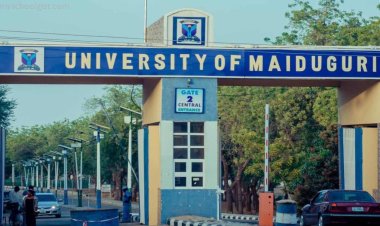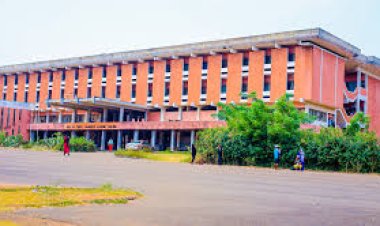Adeseun Ogundoyin Polytechnic Faces Rising Tensions Due to Absence of Governing Council
Adeseun Ogundoyin Polytechnic in Eruwa is experiencing rising tensions due to the absence of a functional Governing Council, following the death of its chairman, Professor Abiodun Ojo, five months ago

Adeseun Ogundoyin Polytechnic in Eruwa is facing escalating tensions due to the absence of a functioning Governing Council, sparking concerns among staff and unions about the institution's governance and stability. Established as an autonomous institution under the administration of the late Abiola Ajimobi, Adeseun Ogundoyin Polytechnic has become a focal point for unrest. Insiders report that the dissatisfaction among staff members is growing, with the three major unions at the institution gearing up for potential confrontations with the Oyo State government. They cite a “seeming indifference” to the urgent need for the appointment of a new Governing Council, following the passing of Professor Abiodun Ojo, the former council chairman, five months ago.
Professor Ojo, a respected figure in education and an elder brother of the Oyo State Commissioner for Local Government and Chieftaincy Matters, was instrumental in the council's operations until his untimely death. His absence has left the council non-functional, preventing it from holding meetings and making critical decisions that guide the institution's policies.
The vacuum created by the council's dissolution has halted essential processes, including the installation of a substantive management team. While applications for the position of Rector were submitted and shortlisted, the interview process was abruptly suspended due to the council chairman's health crisis, which ultimately led to his death. This disruption has left candidates and staff anxious, with many questioning the indefinite hold on a nearly finalized appointment process.
Reports suggest that candidates for the Registrar and Bursar positions may have already been selected, raising further concerns about transparency and fairness in the selection process. The lack of direction from a governing body has resulted in a situation where the Acting Management, led by Dr. Gbade Akinteye, has remained in place for nearly four years—well beyond the National Board for Technical Education's guidelines of a maximum 12-month tenure for acting officials.
As the staff divides into factions—those benefiting from the current arrangement, those advocating for reform, and others seeking representation—the absence of a governing body has stymied significant institutional changes. Promotion processes and salary increments approved for all polytechnics have stalled, as only the Governing Council has the authority to lift these restrictions.
Tensions are palpable among the Deans of the four faculties, who are also expressing dissatisfaction over stalled entitlements that had been pending approval from the former council. In interviews, union leaders echoed these sentiments, emphasizing the urgency for the government to reconstitute the Governing Council to prevent an imminent crisis.
Engr. Taiwo Adegoke, Chairman of the Academic Staff Union, stated, “Our members are pushing for all manners of approach to ensure the government puts the council in place without any further delay. We appreciate Governor Seyi Makinde for his support but urge him to avert the looming trouble.”
Meanwhile, Mr. Titiloye Joseph, Chairman of the Senior Staff Association, labeled the ongoing delay as an “avoidable distraction,” urging the Governor to expedite the appointment process. “We hope he heeds our cry in no time,” he added.

 Chris Oyeoku Okafor
Chris Oyeoku Okafor 



